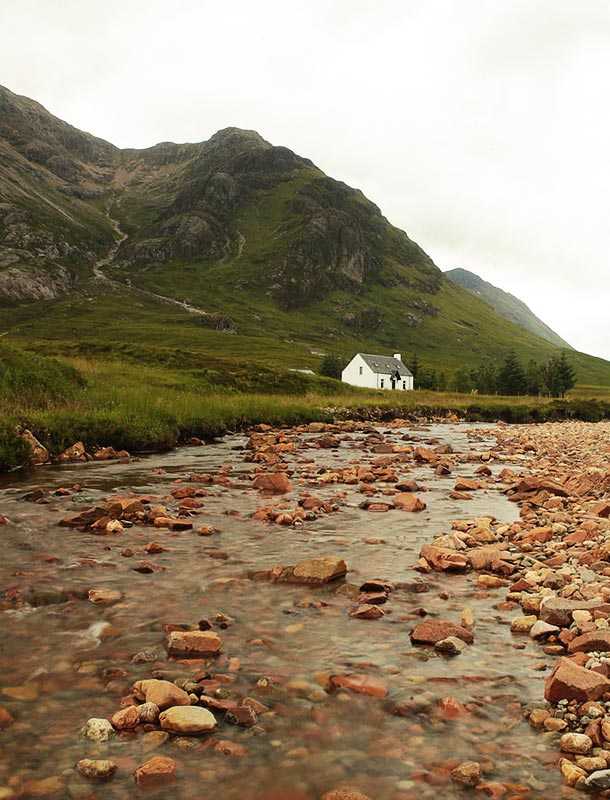Glencoe; The Valley of Sadness and Mystery
5th Jan 2015
In Glencoe there was a local witch called Corrag. She warned everyone when the Redcoats arrived in the frozen evening of 13th February 1692, but no one listened. She spent the night up in the mountains, wrapped in a plaid to keep off the cold. The next morning she ventured down to the village to discover the massacre left behind by the Government troops. Bodies everywhere, people fled into the countryside to try and escape (given the time of year, many subsequently died from exposure), houses burnt. Through the smoke she went into the house of Maclaid, the Chief of the Macdonalds of Glencoe, who had been shot by the Redcoats, and took his broadsword. She carried it to the water and there threw it in, saying:
“So long as this sword lays undisturbed by man, no man from this Glen will die by the sword again.”
A lovely little twist on the story of the massacre, but surely not one which is true? Well a local historian, who died in 2005, was brought up on stories such tales and decided to investigate. He checked the records and, though the Macdonalds were at Culloden, no one died from the Glen that day. Indeed, no deaths recorded at Waterloo, Balaclava, any of the wars fought during the 18th or 19th centuries. No deaths in 1914, 1915 or the first half of 1916.
Then in June of that year a dredger was brought from Glasgow to dredge the loch to make it passable by bigger ships, for the war effort. On the night of 30 June 1916, the captain of the dredger went into the local bar for a drink, and to show off the handle of an old sword he and his men had found. He did not think that the sight of such an item would cause such horror – the locals who knew of Corrag, and therefore what this sword might be, grabbed it and threw it back into the loch and hoped they had done enough.
The next morning, the 1st July 1916, was the first day of the Battle of the Somme. Casualties were enormous, and included seven men from the village of Glencoe, the first to die from fighting since the Massacre in 1692.
Was Corrag a witch? Did the broadsword in the water protect the men of the village? Every time I take tourists to this area of Scotland the power of myth and legend grows stronger in me. What do you think?
Ruth, guide and storyteller

